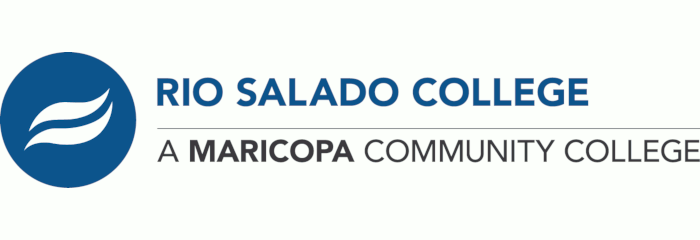2025 Best Online Substance Abuse Counseling Degrees in Arizona
If you want to pursue an online substance abuse counseling degree in Arizona, there are two options for an associate degree and one option for a master's degree online. Accredited universities offer industry-focused curricula that can prepare students for certification or even licensure in this field. With rising demand for qualified counselors, these degrees provide the tools to impact individual recovery and community health.
Key Takeaways:
- Arizona State University excels in popularity among online students, ranking #1 on our list with nearly 67,000 students enrolled entirely remotely.
- Even the last school on our list, Mohave Community College, has over 1,000 distance learners. This means it has a solid infrastructure that can support online education.
As you can see in our methodology, we scoped all degree levels to identify the fully online substance abuse programs in the state of Arizona. While we highlight only one degree per school in our descriptions, some Arizona institutions may offer additional programs in this field.
List Of Accredited Online Substance Abuse Counseling Schools
| School | Online Enrollment | Annual Tuition |
|---|---|---|
| Arizona State University, Online | $18,654 | |
| Rio Salado College | 6,355 | N/A |
| Mohave College | 1,046 | N/A |
2025 Best Online Substance Abuse Counseling Degrees in Arizona
- Online Enrollment: 66,946 enrolled
- Annual Tuition: $18,654
- Locations: Tempe (and 4 others)
Online degree:
Why we like them: ASUO stands at #1 in our rankings due to its substantial online enrollment of nearly 67,000 students, who are studying exclusively online. This puts ASUO in the top 1% nationally for most popular online graduate school. This demonstrates the trust and confidence online students have in the university, affirming its reputation. ASUO hosts an online MS in Addiction Psychology that equips online students to provide counseling services, oversee clinical programs, and manage cases for individuals struggling with addiction. The program comprises 45 credit hours, encompassing 33 credit hours of addiction courses, ensuring well-rounded professional growth. We are further impressed by ASUO's 90% recommendation rate based on over 700 students reviews we've collected.
- Online Enrollment: 6,355 enrolled
- Annual Tuition: N/A
- Location: Tempe
Online degree:
Why we like them: RSC's second place rank is owed to its extensive online enrollment of 6,355 students participating in distance learning. The large online student body is a testament to providing an exceptional online experience, with RSC positioned among the top 9% nationally for popularity among online students. RSC offers an associate degree in addictions and substance use disorders, strategically designed to fulfill coursework to create competent professionals in Arizona. The program, known for its expedited pathway, offers non-traditional students a chance at a world class education.
- Online Enrollment: 1,046 enrolled
- Annual Tuition: N/A
- Location: Kingman
Online degree:
Why we like them: MCC stands as the final school among our list of Arizona substance abuse degree programs online. The online enrollment of MCC is over 1,000 students, showing its popularity. This figure speaks to its appeal and accessibility, providing a significant pool of learners opting for online education. At MCC, the substance abuse counseling program offers remarkable flexibility through its competency-based, self-paced format, allowing you to progress as soon as you demonstrate mastery of the material.
Overview of Online Substance Abuse Counseling Degrees in Arizona
Located in the warm, sunny southwestern part of the U.S., Arizona is home to more than seven million people. Yet, like every other state in the nation, it has its share of issues with substance misuse. The Substance Abuse and Mental Health Services Administration (SAMHSA) that sheds some light on the scope of the problem:
- Notably, 6.8% of people aged 12+ reported having a substance use disorder in the past year, while 13.7% of young adults aged 18-25 faced similar struggles.
- The opioid epidemic remains a significant concern, with nearly 2,000 opioid-related fatalities recorded in 2022 and a sharp increase in overdose rates in Maricopa County over the last decade.
- According to the Arizona High-Intensity Drug Trafficking Area, methamphetamine and fentanyl pose significant threats, with meth being the state’s top drug threat and fentanyl-related overdoses rising due to its potency and frequent use as an additive.
- Alcohol remains a pervasive issue, with binge drinking reported by 30.5% of adults aged 18-25 and 4.7% of people aged 12+ diagnosed with alcohol use disorders.
Despite these challenges, Arizona provides critical resources, including naloxone distribution sites and comprehensive treatment options. Facilities like Pinnacle Peak Recovery offer personalized care, addressing a range of addiction needs with holistic and evidence-based approaches, emphasizing the importance of tailored recovery plans for sustained healing.
Both state and local agencies across the state are taking steps to address substance misuse. For example, lawmakers enacted the to help protect people who are seeking medical help for an overdose. Additionally, the Governor's Office of Youth, Faith and Family that support marketing campaigns designed to educate people about substance use disorders and the dangers of chemical dependency.
Treatment centers, social services, and private practices located throughout Arizona provide treatment and counseling for substance abuse, while distribution sites offer the life-saving overdose prevention drug called Naloxone.
Want to start your counseling career with a bachelor's degree?
FAQs About Substance Use Counseling Degrees in Arizona
What Can You Do With a Substance Use Counselor Degree in Arizona?
Graduates with traditional and online substance abuse counseling degrees or similar degrees can pursue a range of substance use career paths in the state of Arizona.
Depending on your education, you may be qualified to obtain one of three that allow individuals to offer substance abuse counseling in Arizona.
1. The first level is the Licensed Substance Abuse Technician (LSAT), which requires an associate degree.
2. The second level is the Licensed Associate Substance Abuse Counselor (LASAC), which requires a bachelor's degree.
3. Finally, the third level is the Licensed Independent Substance Abuse Counselor (LISAC), which requires a master's degree.
Given that education is one of Arizona's strategies for preventing chemical dependency and drug misuse, there are also opportunities for you to become a health education specialist or community health worker. After several years of on-the-job experience, you may qualify for a higher-level position as a health or community services manager.
How Much Does a Substance Use Counselor Make in Arizona?
According to the Bureau of Labor Statistics (BLS), the mean annual income for substance abuse, behavioral disorder, and mental health therapists in Arizona is (as of May 2023). The BLS also notes that there are about 8,110 of these professionals currently working in the state, but employment opportunities are projected to grow across the U.S. at an extraordinarily high rate of through the next decade. That's a lot of job security when you consider that the average across all U.S. occupations is only 4%.
How Do I Become a Substance Use Counselor in Arizona?
If you're planning to become a substance use counselor in Arizona, you'll want to familiarize yourself with the state's licensing board. The Arizona State Board of Behavioral Health Examiners oversees and monitors substance abuse counseling certification and all other types of counselor certification in the state.
Certification for substance use counseling in Arizona is rather complicated, but in general, there are three levels. Each level requires progressively more formal education and supervised training.
In terms of college degrees, the Licensed Substance Abuse Technician (LSAT) requires an associate degree, the Licensed Associate Substance Abuse Counselor (LASAC) requires a bachelor's degree, and the Licensed Independent Substance Abuse Counselor (LISAC) requires a master's degree. Applicants also need to show that they have taken a certain number of credit hours in counseling-related courses, such as treatment methods, behavioral assessments, and diagnostics.
Regardless of whether you earn an on-campus or online substance abuse counseling degree or a similar degree, it must be from an institutionally accredited school. Also, substance abuse counseling master's degrees must be earned through programs accredited by the Council for Accreditation of Counseling and Related Educational Programs (CACREP). Some affordable online degrees in substance abuse counseling are also accredited by CACREP and may be a good option for those wanting to keep costs down. (All programs features on our site are fully accredited.)
In addition to formal education, applicants must be able to verify that they have received a certain number of hours of supervised training. Applicants and their supervisors must follow strict guidelines in completing these clinical hour requirements.
Finally, applicants must pass an exam. LSAT candidates can take one of three exams — the Alcohol and Drug Counselor and Advanced Alcohol and Drug Counselor Exam offered by the International Certification and Reciprocity Consortium (IC&RC) or the National Certified Addiction Counselor (NCAC) exam level I or level II sponsored by the Association for Addiction Professionals (NAADAC). LASAC and LISAC candidates also have three options — the Alcohol and Drug Counselor and Advanced Alcohol and Drug Counselor Exam, the NCAC level II exam, or the Master Addiction Counselor (MAC) exam.
Does Arizona Have Reciprocity for Substance Use Counselors?
If you have earned one of the addiction counseling certifications recognized by the IC&RC in a state other than Arizona, you may be allowed to practice in Arizona because the state is an IC&RC member. The reverse is also true for counselors living in Arizona who want to practice in other states.
Substance use counselors from other states whose certification is not recognized by IC&RC need to complete the entire application process shown above to be licensed to practice in Arizona. You must also be an Arizona resident to obtain licensure.




